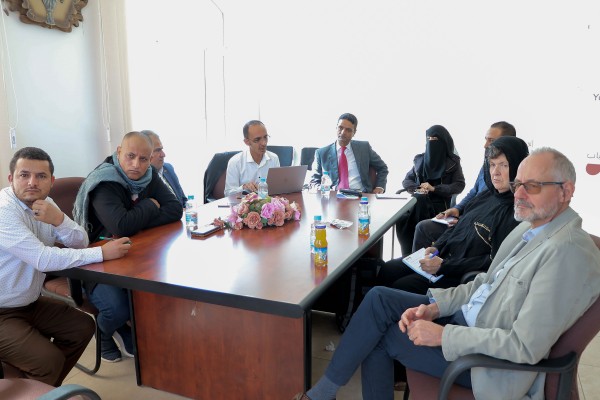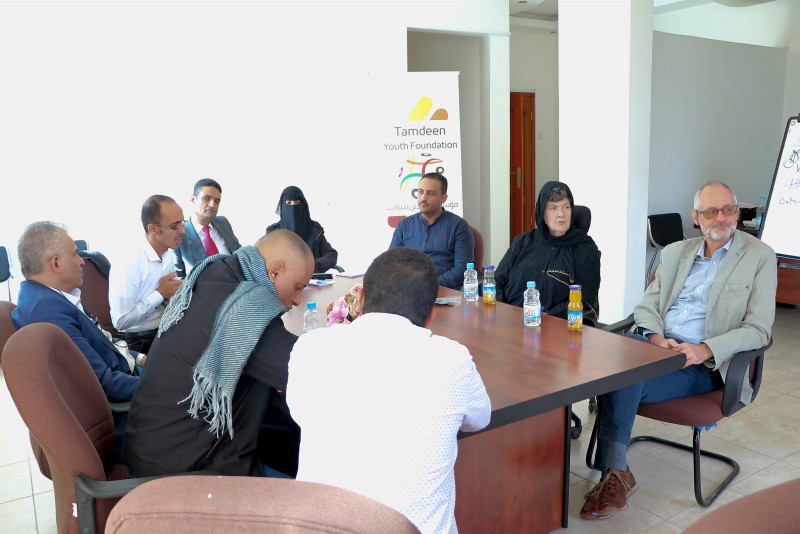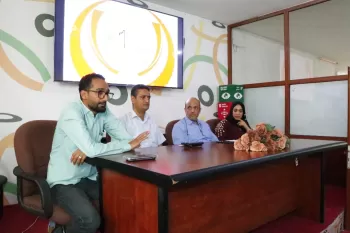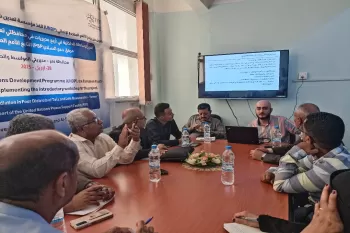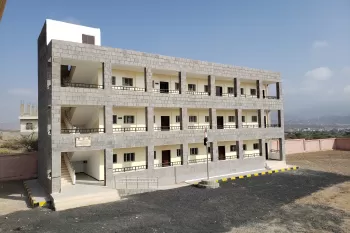Tamdeen Youth and Zoa Discuss the Prospects for the Humanitarian Action Localization Initiative in Yemen
To actively promote fruitful cooperation and build strategic partnerships between local and international organizations, which reflect on the localization of humanitarian action and the improvement of the humanitarian response mechanism in Yemen, Tamdeen Youth Foundation held several meetings with local and international actors, most recently with Zoa.
The meeting, held at TYF's office in Sana'a, discussed many important aspects, such as improving the humanitarian response mechanism, the triple nexus, development, and peace-building, while not losing sight of the complexities in a conflict-affected country such as Yemen.
Dr. Tammam Al Hetari, Program Manager of TYF, explained the Humanitarian Action Localization Initiative in Yemen, highlighting the most important phases, and the extent to which TYF’s efforts locally and internationally to improve the humanitarian response mechanism in Yemen.
The Coordinator of the Humanitarian Action Localization Initiative in Yemen, Chairman of TYF, Mr. Hussein Al-Suhaily, addressed the main reasons for launching the initiative, as it was not a result of curiosity or luxury but of urgency and full conviction. The Initiative was based on coordination and consultation with local actors and international partners in favor of humanitarian action localization. Accordingly, there must be a unified strategy to ensure equity in capacity-building, partnerships, and grants, as well as a reflection of the localization in the interest of international organizations.
He indicated that after seven years of war, Yemeni civil society has a vision and experience in developing humanitarian response mechanisms, a wide knowledge of the situation, and the ability to work with international efforts in development and peace.
The Country Director of Zoa, Mr. Gerhard Bärtschi, thanked the extensive and brief presentation of the humanitarian action localization process. He was pleased that the localization represents the largest part of the interest of TYF and Yemeni civil society. Zoa, for its part, is committed to localization and considers it necessary to improve the effectiveness, efficiency, and sustainability of humanitarian action and to expand towards development and peace-building.
As for the head of Programs Support at Zoa, Ms. Cathy Hynds, she expressed her pleasure that local organizations are uniting in the Humanitarian Action Localization Initiative in Yemen. She considers the existence of a union or alliance for Yemeni civil society is a good gesture.
At the end of the meeting, Al Suhaily praised the interest of Zoa in the localization of the humanitarian action. He pointed out that European organizations in general and Dutch in particular are highly welcomed by Yemeni civil society, which is a positive aspect to establish strategic partnerships with them.

